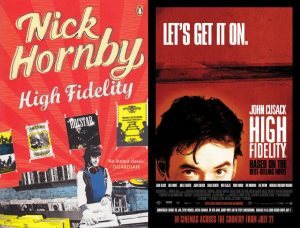Why Can’t All Books be Good Movies?
Victoria Kiarsis // Blog Writer

I have seen numerous films that have been adapted from novels, and I’m also currently taking a class called Novel into Film. What I’ve learned through my experience inside and outside of this class is that films cannot be made from novels that have a large amount of internal dialogue or narration. Films cannot uphold the same themes as complex novels can. If you’ve ever seen One Day with Anne Hathaway, The Time Traveler’s Wife with Rachel McAdams, The Help with Emma Stone, or Room with Brie Larson, and have read the novels, you’d know that it is possible to have pretty exact copies.
But when we look inside of the words in these books, there is action and dialogue. Nothing too internal nor any nuances that can only be understood when inside the mind of a character,which is impossible in a film unless a director/writer decides that the character will talk to the audience. This practice, in my mind, is immature and inauthentic. I saw it in High Fidelity with John Cusack. The actor was obnoxious every time he turned to the camera, and the ideas of pop culture influencing one’s thoughts and actions that I enjoyed in the novel were translated into this Hollywood picture of a story with a bad beginning and a happy ending without any sort of take away.
Again, the only way that a film can get these internal thoughts through is in the form a letter the character is writing—yet reading out loud—or through talking to the camera. I have yet to come across an internally developed character in a film without the aid of a diary or some awkward dialogue where his or her guts are spilled. If anyone has any recommendations, I’m open! I have not had the chance to read all of the novels that have been made into films, nor have I probably read all of the popular ones. I found in reading One Day, The Time Traveler’s Wife, and The Help that sometimes reading the book if I’ve already seen the movie is not worth it.
That is unfair though because who knows? I have read Slaughterhouse-Five, where incredible meditations on death and time were thrown away for a classic anti-war sentiment in the 1972 film; I have read The Revenant, where a child was added into the film because an audience would not have been able to conceive of such a story based half on the thievery of the man’s rifle—and I would not have known these things if not for reading and watching. What I’m trying to say is that in my opinion there is no novel with complex internal ideations that can be translated intact into a film. Does anyone agree? I do encourage reading and watching—the conversation of which is better to do first is beyond me.
